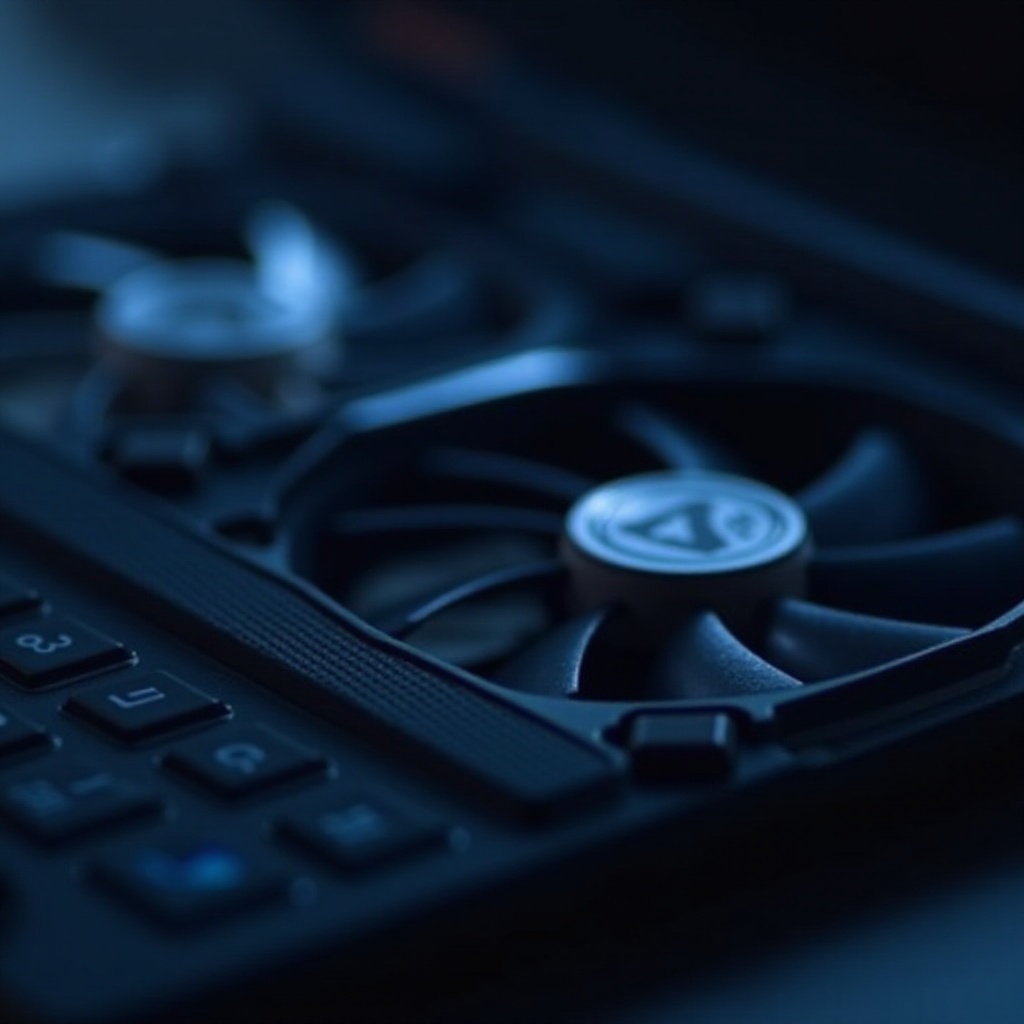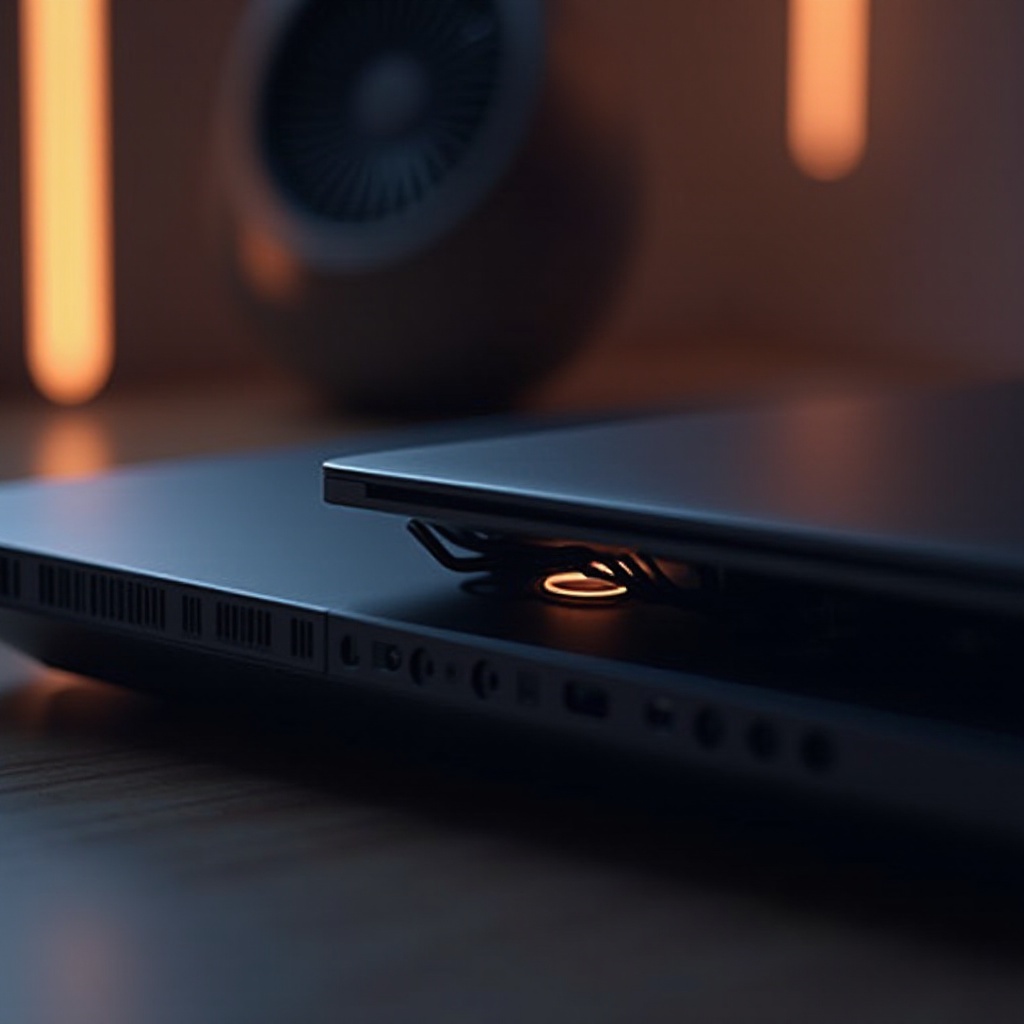Introduction
Gaming laptops are impressive machines that pack substantial computing power into portable designs, enabling gamers to enjoy their favorite titles on the go. However, a common drawback of these powerful devices is the often loud fan noise that disrupts gaming sessions. This noise can be annoying and might indicate underlying problems with the laptop’s performance or health. If your gaming laptop’s fans are constantly roaring, rest assured, you’re not the only one facing this issue. The good news is, there are multiple ways to alleviate this noise, allowing for a more enjoyable gaming experience. In this article, we’ll delve into the reasons behind fan noise and provide practical advice on maintenance, software tweaks, and hardware upgrades to ensure a quieter gaming laptop environment.

Understanding the Causes of Fan Noise
Loud fan noise in gaming laptops is typically caused by overheating, which forces the cooling system to work extra hard to keep temperatures down. This is often triggered by demanding games or applications that push the laptop’s hardware to its thermal limits. Dust and debris accumulation is another significant factor, as they can obstruct air vents and impede efficient fan operation. Furthermore, some laptops are equipped with inherently noisy fans due to their design or speed. Occasionally, outdated or malfunctioning driver software may also hinder optimal fan performance, exacerbating the noise issue. Identifying these causes is the first step in adopting effective solutions.

Basic Maintenance and Care
Routine maintenance is crucial to ensuring your gaming laptop runs smoothly while keeping fan noise to a minimum. Here are some foundational steps you can take:
-
Regular Cleaning: Use a can of compressed air to clear out dust from the vents and fan areas. Make sure to turn off and unplug your laptop before starting. This should be done every few months, or more frequently if you regularly use your laptop in dusty environments.
-
Choose the Right Surface: Always place your laptop on a hard, flat surface when using it. Soft surfaces like beds or sofas can obstruct vents, increasing the risk of overheating.
-
Monitor Temperature: Utilize software to keep an eye on your laptop’s temperature levels. If it frequently overheats, you may want to lower the graphics settings in your games.
-
Keep Systems Updated: Constantly update your drivers and operating system to benefit from improvements in system performance and thermal management released by manufacturers.
Incorporating these maintenance practices creates a solid foundation for software and hardware solutions aimed at further noise reduction.
Software Solutions for Noise Reduction
Software tweaks offer a proactive approach to controlling fan noise. Here are several strategies to employ:
-
Fan Control Software: Applications like SpeedFan for Windows allow manual fan speed adjustments. By controlling fan speeds based on needs, you can curtail noise during less demanding tasks.
-
Power Management Settings: Adjust power settings to optimize performance and energy use. Most OS offer power plans that balance these factors, helping limit both energy draw and heat output.
-
Game Settings Adjustments: By lowering in-game settings such as resolution, texture quality, and shadows, you can reduce hardware load, thereby decreasing fan noise.
While software solutions are effective, sometimes hardware modifications can offer more substantial noise reduction.
Hardware Enhancements to Minimize Noise
Hardware upgrades can provide a more permanent solution to fan noise issues, complementing software tweaks.
Cooling Pads and External Options
Cooling pads are an affordable method to enhance airflow and reduce your laptop’s temperature. These devices feature built-in fans that assist in cooling from below, lessening the burden on internal fans. Also, consider external fan systems that can attach to exhausts for amplified cooling.
Upgrading Thermal Components
Internal hardware modifications can also have a significant impact. Upgrading thermal paste between the CPU/GPU and heatsinks enhances heat transfer, thereby reducing fan activity. Additionally, consider replacing internal fans with quieter, more efficient models if possible.
Despite these enhancements, persistent fan noise might indicate the need for deeper troubleshooting.

Advanced Troubleshooting
Fan noise that remains despite implementing basic and advanced solutions may require further diagnostic efforts.
Abnormal fan behavior might be symptomatic of underlying hardware problems. Use utilities like Task Manager or Activity Monitor to scrutinize software activity for any excessive processes leading to overheating. If these efforts yield no resolution, consider consulting professionals.
Professional Servicing Considerations
Enlist professional help when fan noise issues remain stubborn. Technicians can perform thorough cleanings, detect hardware faults, and execute diagnostics beyond standard user capabilities.
Conclusion
Dealing with fan noise in gaming laptops is a common but addressable challenge. By understanding causative factors and applying targeted maintenance routines, software adjustments, and hardware upgrades, you can significantly cut down noise levels. Nevertheless, when difficulties persist, professional servicing ensures your gaming laptop stays in optimal condition.
Frequently Asked Questions
How often should I clean my laptop fans?
Ideally, clean your laptop fans every three to six months. If you frequently use your laptop in dusty environments, aim for more regular cleanings.
Can software really help in reducing fan noise?
Yes, software can effectively reduce fan noise by optimizing performance settings to lower the demand on your laptop’s hardware, thus minimizing fan activity.
When should I seek professional help for my laptop’s fan noise?
If you’ve tried basic maintenance, software solutions, and hardware upgrades but still experience persistent fan noise, it might be time to consult a professional technician.